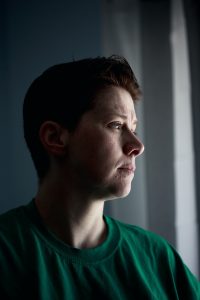
Therapeutic Life Story Work Miniseries

Author
CWCSHANNON
Published on
- June 2, 2020
Published on
- Blog
Number One ~ The Benefits
Welcome to our blog mini-series featuring the program Therapeutic Life Story Work. We will be releasing one blog per week over a six-week period to help our audience discover and understand this valuable program.
You can Click Here to read our last blog post that introduces and provides an overview of Therapeutic Life Story Work (TLSW)
As we have said many many times, we consider TLSW to be the future for Children and Young People in care. The program allows them to understand the trauma they have experienced, develop compassion for themselves, and build the capacity to look forwards and lead full and happy lives. Our founder Shannon states “I have never before encountered a program that has left me feeling so enlightened, redirected and so incredibly motivated”
The benefits of TLSW are significant, not only for the children and young people themselves, but also for our wider community services industry. As an industry, our mission and vision is to work towards cultivating and achieving the betterment of lives for the children and young people in our care. This program unequivocally results in the betterment of quality of life and purpose for the children and young people it serves.
This program is the answer to the question that we didn’t know existed. It is in our view, what has been missing for so long in this out-of-home care support system. And that is an identity. An identity for the child, for their history, for their past connections, and for their autonomy. Autonomy is the state of being self-governing. It is a person’s sense of self, of being able to make decisions regarding the direction of actions and freedom to pursue choices.

When a child/young person transitions towards the end of, or finishes their journey of out-of-home care, we as an industry expect them to have personal autonomy and we hope they lead positive, productive lives. So often, this is not the outcome.
When a child/young person leaves our care, their sense of autonomy must guide them to pursue choices, engage in self-regulation, successfully monitor their own needs and values, respond adaptively to their environment, and initiate, organise and direct their own actions towards the achievement of their needs.
This personal autonomy is expected, yet it demands an intrinsic requirement of identity. Identity is fragile. It is built on the culmination of a lifetime of memories, experiences and connections.
If these memories, experiences and connections are fragmented, it is nearly impossible to develop a strong self-identity. And without a strong identity, a subsequently strong and capable personal autonomy is even harder to achieve.
Being self-governing requires an identity. It requires knowing who we are. And to know who we are, we must know where we have come from. Without TLSW, children and young people in care grasp at information, and at best, have disjointed and often self-imagined histories.

TLSW researches the child/young persons history and their people, it pieces this together and lets the child see, direct and explore this process and discovery.
The program finishes with a book. A book written by the child/young person and practitioner that is literally their life story, a physical replacement of their natural history and those things lost to them. This book is their identity, it will become their autonomy and carve their future.
This miniseries will journey through each stakeholder involved and impacted by TLSW. Our next post will look closely at the role of the caseworker, and how TLSW is seen and received through their eyes.
To follow us on social media Click Here


